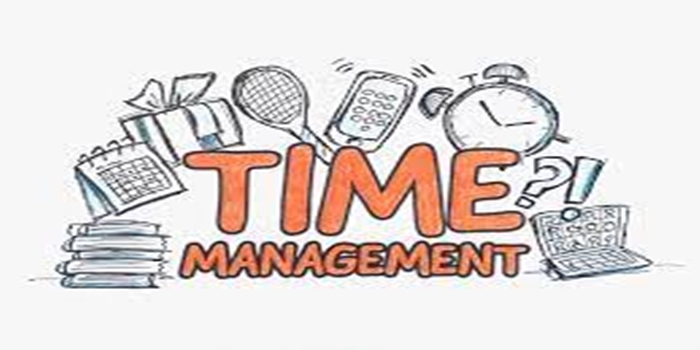In this article, we discussed the meaning of time management, the tips for improving, the steps and the strategies we also talked about the benefits
Definition
Time management is the process of consciously planning and controlling time spent on specific tasks to increase how efficient you are. You may be familiar with setting deadlines, writing to-do lists, and giving yourself small rewards for accomplishing certain activities.
Time management is the practice of planning and controlling how you spend your time to be more productive, efficient, and effective. It can apply to many areas of life, including work, family, hobbies, and social life.
Here are some tips for improving your time management:
Prioritize: Prioritize tasks based on their importance and urgency. For example, you can do tasks that are both important and urgent right away, and delegate tasks that are urgent but not important.
Create a plan: Make a daily planner and set reminders for tasks.
Avoid distractions: Reduce or eliminate distractions, and set aside a time to deal with them.
Take breaks: Make sure to take breaks.
Use the 4 Ds: Categorize tasks as “do”, “defer”, “delegate”, or “delete” to help you focus on what’s most important.
Use time management apps: Some apps can help you manage your time.
Here are some strategies for effective time management:
Prioritize: Make a to-do list and order tasks by priority. This helps you focus on the most important tasks and use your time productively.
Eliminate distractions: Stay focused to get things done.
Use time management tools: Online tools and productivity methods can help you manage your time and get things done on time.
Delegate: If possible, delegate some tasks to a teammate to lessen your workload.
Use the Pomodoro Technique: Alternate between 25-minute work sessions and 5-minute breaks to maintain focus and productivity.
Time blocking: Divide your day into blocks and assign a specific task or group of tasks to each block.
Stop multitasking: Focus on one task at a time to be productive. Some experts recommend taking short breaks every 20 minutes to avoid burnout.
Stay organized: Keep a tidy study environment and maintain an up-to-date calendar.
Other strategies include:
Knowing how you’re spending your time
Sticking to a daily schedule
Automating repetitive tasks
Tackling the most difficult task first
Batch-processing similar tasks
Setting reasonable time limits
Learning when to say no.
Time management can have many benefits, including:
Increased productivity: You can set clear goals, prioritize tasks, and work more efficiently to accomplish them.
Better decision-making: Good time management skills can free up time and help you make better decisions.
Better work-life balance: You can be more productive at work and have more time for other things.
Decreased stress: You can avoid working at an uncomfortable pace and stay relaxed.
More opportunities: You can create more opportunities for personal and professional growth by learning new skills, pursuing interests, and developing your career.
Defeat procrastination: You can finish tasks on time without rushing at the last minute.
Improves self-discipline: You can exercise your self-discipline muscles and eliminate procrastination.
Here are some steps you can take to improve your time management:
Set goals: Set SMART goals that are specific, measurable, achievable, relevant, and time-based.
Prioritize: Make a priority list and focus on one task at a time.
Schedule: Schedule tasks and discretionary time.
Break down tasks: Divide large tasks into smaller, more manageable sub-tasks.
Take breaks: Be mindful of stress and take breaks when needed.
Eliminate distractions: Identify your most common distractions and take steps to eliminate them.
Learn to say no: It can be hard to say no, but it’s essential for improving your time management.
Use a calendar: A calendar is one of the most important tools to manage your time.
Use time management tools: Invest in time management tools and build a system to follow.
Conclusion
Time management is the process of organizing and planning how to allocate your time between different tasks and activities. It allows you to work smarter, not harder, leading to greater productivity and reduced stress.

